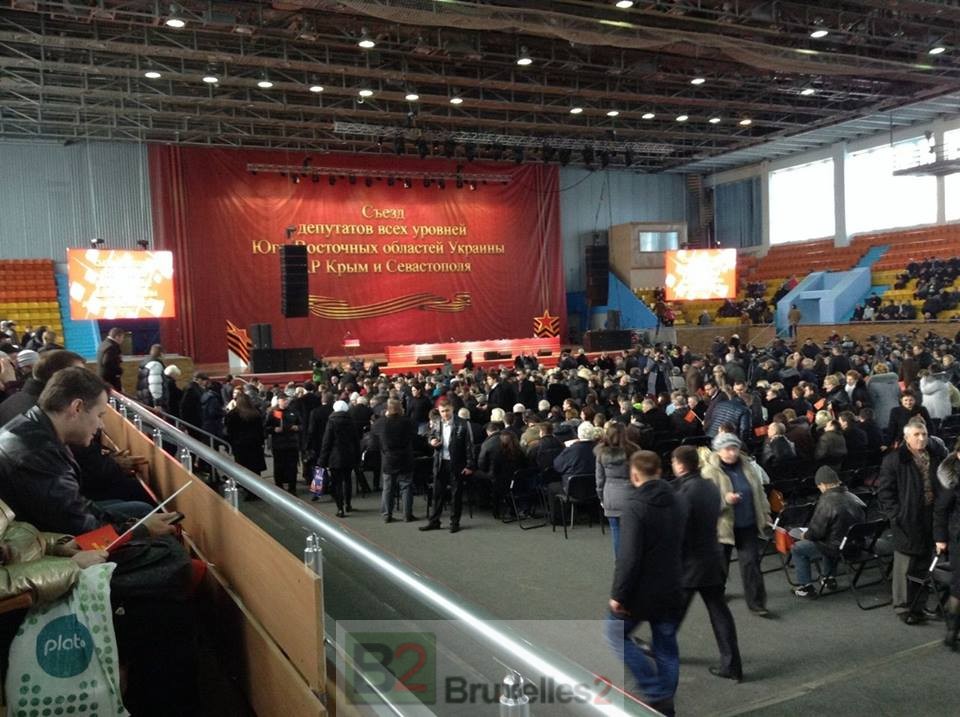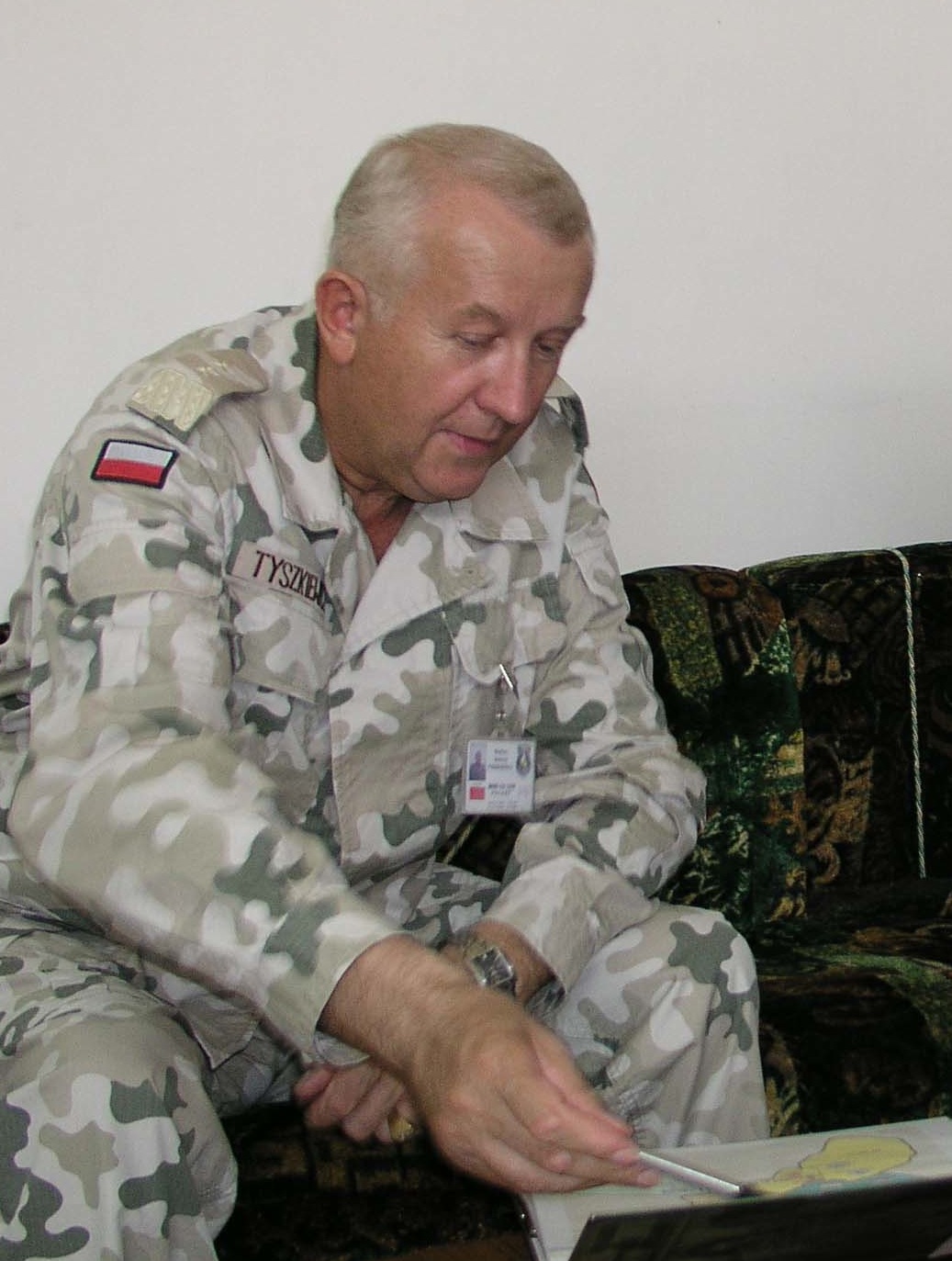The Commission in the West… on Ukraine! (shift)
(BRUSSELS2) We were several journalists asking questions about a possible European reaction to Ukraine, and the possible Russian reaction, during the European Commission's daily midday briefing on Friday.
The exchange of questions and answers lasted almost half an hour and covered a large number of subjects: the sanctions against certain Ukrainian officials, the signing of an association agreement and the possible reaction to the events in Crimea. We were looking for a somewhat precise reaction to the turn of events... Without success. The spokesperson for the Commission stuck to chiseled answers, with extreme caution and a certain diplomatic circumspection, which in themselves have a meaning: the political weakness of the European executive. The exchange is to be listened to again here.
The political solution.
In Crimea, we have seen the different reports which are sometimes contradictory, you have to be careful about the situation on the ground and where the different parties are” explains Commission spokesperson Olivier Bailly. And to add: “The situation in Crimea requires a political solution, first and foremost. And this must be done with dialogue between all parties. We have been calling from the start for dialogue between all the Ukrainian components and for respect for all, we are calling on all the players — I mean everyone — to show maximum restraint and respect more than ever the integrity and unity of Ukraine. »
We do not see very clearly on the movements on the spot (in Crimea)
To the question (that of B2) what reaction will the Commission have when the integrity of Crimea is violated, for example a procedure for the recall of the ambassador? The answer remains the same. " The information is not very clear on the movements - he repeats. " NOTWe want to take stock of the situation, we need to see more clearly. We have to be sure of what is happening on the ground by our diplomatic means, by the various services that we have. Until we have that, we stick to the political message. In other words, one word: the preservation of “ territorial integrity but with no firmer meaning to the Russians.
The parallel with Georgia: dangerous
To a colleague who continues and wonders if the situation in Crimea is not a repetition of what happened in Georgia. The answer is firm: There should be no parallels. (...) Any parallel is risky and dangerous. »
Comment: Cascading errors
This dialogue is confusing. The spokesperson for the Commission is reduced to delivering (very good) a (very bad) message which denotes total naivety and political unpreparedness in the face of the events which had already begun since this morning in Crimea and have been confirmed this evening. And this answer is not isolated. In fact, the European Commission has seemed, for several weeks, completely taken aback by the development of the situation in Ukraine. And multiplies the contradictory attitudes and remarkable political heads to tail. Four subjects, for example...
1) The role of Russia. A few days ago, the discourse was: an association agreement is on the table, it's up to the Ukrainians to decide and on their own, we don't want any dialogue with Russia, no trilogue (as well as the suggested Moscow). Today is a direct appeal to the Russians. " All of Ukraine's partners are important. (...) Russia (also) is an important partner, cultural economic policy. The Russians must be part of a solution, if they want to be ". Too late !
2) Ukrainian power. Until the end of November, Yanukovych was a respectable and democratically elected leader. Since the European Union was about to sign an association agreement with him. When the opposition and the challenge started to win, the person concerned lost respectability and the opposition gained respectability. But C. Ashton, like the Commission, refused to make a distinction among the opponents, in particular to stand out from a very nationalist section close to the extreme right. Today, now that the first nationalist measures taken by the new opposition government — in particular the suppression of minority languages — Russian, Hungarian, Polish... — spoken in Russia — have been taken, the new Ukrainian power is called upon to more tolerance. Worse, by calling "all parties to a solution in Ukraine, the Commission acknowledges that the agreements concluded under European auspices on February 21 have not been fully respected by the new Ukrainian authorities.
3) The sanctions. Shortly before the violence, the Commission refused any sanction against those responsible for the tension. "It would be counterproductive," we explained. Position that held until the violence where a complete U-turn and to propose sanctions. Today, these remain “in the fridge” but the Commission refuses to make other proposals allowing not only to sanction those responsible for the violence but also those responsible who could be responsible for embezzlement, and returns the responsibility “ on the Member States ».
4) Military intervention. A few days ago, a senior European diplomat - however very wise and very ordinary - confided to some journalists (including B2) that the era of Russian military interventions that we had known in Budapest in 1956 or in Prague in 1968 was not more news. Again this Friday, the European executive refused to see a military intervention while soldiers "without insignia" were already present in Crimea. The reason put forward ("we are waiting to verify") clearly shows the limits of this exercise, which also reveals a certain European "naivety" in the face of the new Russian power.
Comments : So many about-turns raise questions. Is it voluntary or is there sight-seeing within the European executive. Several different hypotheses can be identified.
- The unpredictability. The Commission believed (naively) that the association agreement (led by Commissioner Stefan Füle) would be accepted and did not plan a plan B (a credible hypothesis, the Ukrainian file having now been taken over by C. Asthon and Füle sent back to his shelves).
- The parse error. The European Commission has remained with an outdated analysis: Russia is too weak and too dependent on international relations to react (a feeling very present in European circles which have not really drawn the consequences of the 2008 turning point and the intervention in Georgia (the spokesperson's intervention on this point is enlightening).
- Political followership. Europe does not intend to be a "power" and is content to follow American policy vis-à-vis Russia (Nb: at noon the United States had not yet fixed their position).
- political cynicism. A tacit agreement was made on the Russian reappropriation in Crimea and the preservation of the rest of Ukraine. A new share of Yalta, Georgian style...
Conclusion: Choose your version. But we can also consider that the four hypotheses add up. It is thus striking to see in the Russian-Ukrainian affair how much difficulty the Europeans have in reviewing their position and analysis, once they have forged them. It is not so much the non-use of force, to which Europe is reluctant (fortunately), which is in question here. But errors of assessment combined with the refusal to use all the usual diplomatic (summoning of an ambassador, etc.) and political (emergency meeting of ministers, etc.) instruments, which usually make it possible to send a preliminary signal of dissatisfaction to an international "interlocutor". All things considered, the weakness and a certain blindness of the reaction of the European institutions seem to me quite close to what happened in 2007-2008 at the start of the financial crisis. Europe has always acted, with a delay, on events.
(Updated March 1) editorial corrections and additions of a more developed conclusion


There are not many parallels to be drawn between the Georgia/Ossetia/Abkhazia case and the Ukraine/Crimea case. The circumstances are very different. For Georgia, Putin set a trap and Saakashvili jumped in with both feet but was right at home in historic Georgia. South Ossetia is an artificial province that has always been Georgian, but includes a minority protected by Moscow. Crimea is “artificially” Ukrainian or Russian, since Tatar, but assimilated Ukrainian since Stalin. Just as the Sochi Region is Georgian, until Stalin's decision to integrate this magnificent region into Russia.
Another huge difference between Georgia in 2008 and Ukraine today: Putin prepared his coup for a year – by his own admission (he is not afraid of anything) – to overthrow Saakashvili and annex Georgia. Europe, taken aback, sent Sarkozy to fix things. For Ukraine, it is Putin who is taken aback. But as he had passed a law which allows him to intervene anywhere in the world where a Russian would be in danger, which is the case of Ukraine and especially Crimea where, as in Abkhazia during the years preceding 2008, he distributed Russian passports by the thousands to Russian-speaking Crimeans who wanted them in recent days.
Putin, for the moment, seems to be testing the waters, sniffing out Western reactions. The Chechen experience should give him confidence: 200.000 dead and he is still there. The territorial integrity of Georgia, he had nothing to beat, and he occupies 20% of the territory without any sanction. So Ukraine, the mother of the Russian fatherland…
The worst clumsiness/ volte-face of the Commission was to open and then close a “prospect of accession” of Ukraine to the EU. It was the work of the “Commissioner for Enlargement” who clumsily tried to play a diplomatic role in this affair. JJ